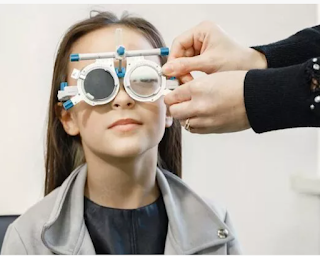How Do I Know That My Eye Got Infected?
You might suffer from an eye infection if you experience itchiness in your eyes and observe that they turn pink. In such a situation, you should visit the New Jersey Eye Center and consult an eye specialist to make the final call.
You might be wondering how I know that you have an eye infection. This blog describes the key signs that can give clues that something is wrong with your eyes. In addition, you will learn about some common types of eye infections and tips to prevent them.
Eye infections can occur in various ways, with symptoms varying based on the affected part of the eye. For example, you can experience problems in the cornea, eyelid, or conjunctiva.
Common symptoms that show you have an eye infection:
Depending on the severity of the infection, you can experience signs in one or both eyes. If you have an infection in your eyes, you may experience the following issues, such as;
Itchiness in the eyes.
Painful eyes.
Discomfort.
Sensitivity to bright light or burning sensation in your eyes.
Presence of a small lump under the eyelid.
Irritation in eyes.
Eyelids are tender when you touch them.
The appearance of your eyes-
If you observe the appearance of your eyes, you are more likely to notice the following changes.
You observe the pink color in the white part of your eyes.
Green or yellow discharge from eyes.
Inflamed, red-purple-colored eyelids.
Red or crusty lashes in the morning when you wake up.
Vision problem-
Also, if you have an eye infection, you can experience blurry vision. In addition to these signs, you may also get the following symptoms-
Fever.
Swollen lymph nodes near the ear.
Difficulty wearing contacts.
If you experience any of the above-listed signs, it’s time to see a doctor at New Jersey Eye Center. Treating on time can save you from worsening the eye condition.
Common types of eye infections-
Once you visit a doctor, you will know what type of eye infection you have. Most commonly, there are three types of conditions-
Conjunctivitis- Also known as pink eye, it’s an infection that affects the conjunctiva, giving the eyes a pinkish appearance. Either bacteria or a virus can cause it. But allergens or irritants can also trigger the infection.
Getting pink eyes is expected if you are suffering from the symptoms of a cold. In adults, it's usually caused by a virus, while in children, it's often due to bacteria.
Keratitis-
Corneal inflammation, known as keratitis, can occur due to bacteria, viruses, or waterborne parasites. This condition is frequently encountered by individuals who wear contact lenses.
Stye-
You may experience the emergence of tender, red bumps beneath your eyelid or near the roots of your eyelashes. These bumps occur when the oil glands in your eyelashes or eyelids become infected with bacteria.
Though they resemble pimples, they are not contagious.
Before your doctor provides the treatment, they will observe the signs in your eye. Then, they will prescribe medications or eye drops based on the signs and symptoms.
Doctors may even take a tissue or fluid sample depending on your eye condition. Then, they will send the samples to the lab for diagnosis. Finally, based on the results, they will provide the treatment and may prescribe creams, medicines that need to be taken orally, or eye drops.
If they observe the infection due to other health conditions, injury, or allergy, they will also recommend treatment to manage these issues. It is best not to wear contact lenses until the infection is not cleared.
Easy-to-follow tips to prevent an eye infection-
To prevent eye infections, you can follow these tips-
Do not touch your eyes frequently.
Insert/remove the lenses carefully with clean hands.
Wash your hands properly before you touch your eyes.
Wash your towels regularly.
Keep your bedding clean and well-maintained.
Schedule your appointment today!
If you live in New Jersey and suspect an eye infection, don’t hesitate to book your appointment at the New Jersey Eye Center. However, it’s advisable not to self-diagnose the condition. Instead, see an eye specialist and get the required treatment.


Comments
Post a Comment